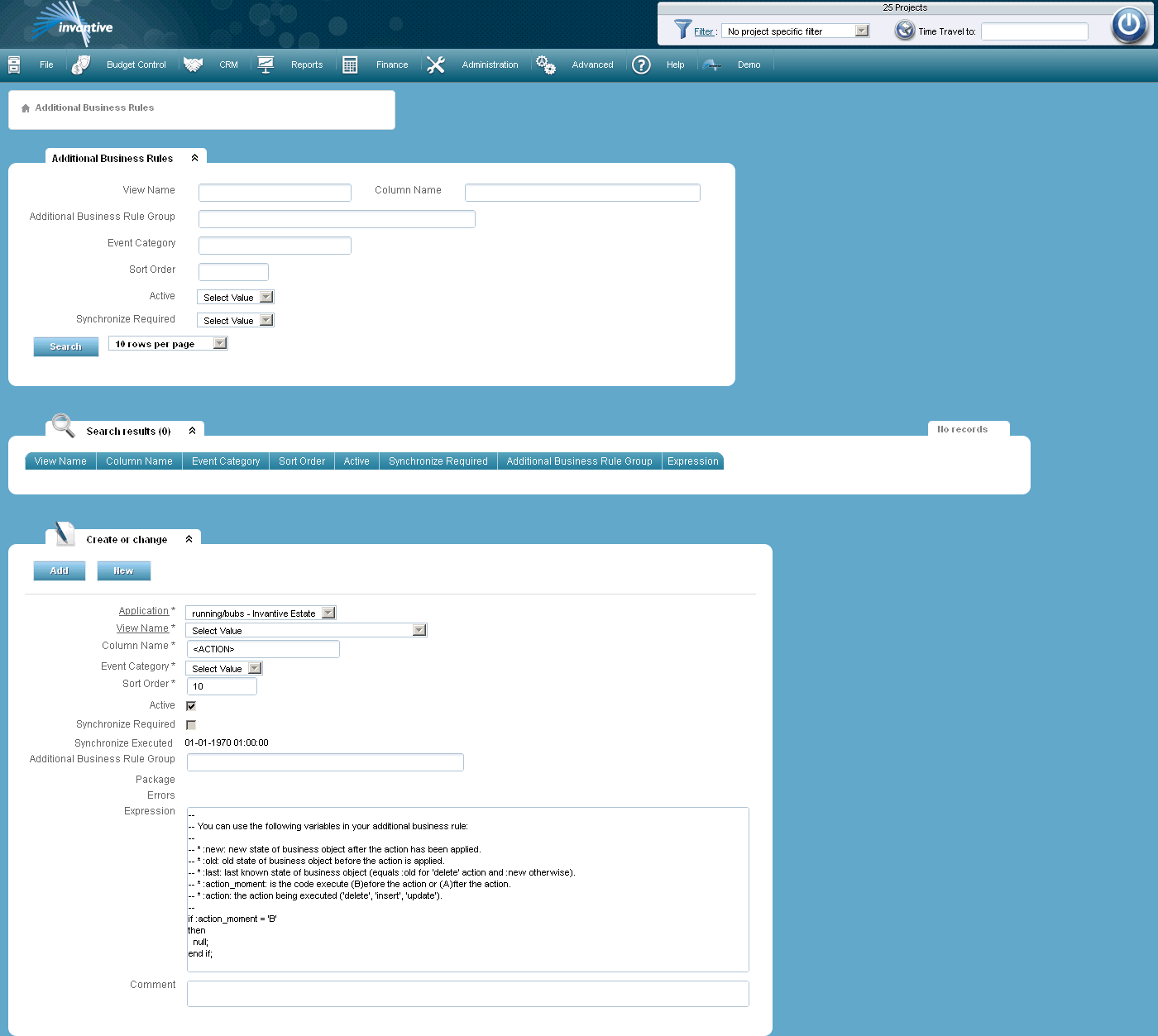Additional Business Rules |
In this screen you can enter and change supplementary business rules. Open Form
Open Form
Additional business rules are used for:
•to add additional checks like ‘no orders out of budget’.
•to perform actions like ‘send email’.
•provide fields with a default value.

The meaning of the entry fields is:
Application |
The name of the application to which the additional business rule applies. |
View |
Name of the view to which the additional business rule applies. |
Column Name |
The name of the column to which the additional business rule applies. |
Event Category |
Indicates the type of event that starts the additional business rule. Enter for standard filled in values, in all other cases always ‘<Action>’. |
Sort Order |
A numeric value used for sorting the additional business rule when they are shown in a list box in a screen. |
Active |
Indicates if the additional business rule is active. |
Synchronization Required |
The ‘Package’ needs to be recalculated if an additional business rule is changed in case this indicator is checked. The recalculation of the ‘Package’ takes place via Background Jobs. |
Synchronization Executed |
The date on which the last synchronization was performed to this additional business rule. |
Group |
The group of the additional business rule. Groups help to organize additional business rules to business processes or other formats. |
Expression |
SQL expression to determine the values in the column (if the column is filled) and in other cases a SQL/PL code block (if column is ‘<Action>’). You can use the following references in a PL/SQL code block: :action: the SQL statement which executes the company rule; 'INSERT', 'UPDATE' or 'DELETE'. :action_moment: the moment when the additional business rule is executed, for ('B') or after ('A') the updating of the company object. :last: the last added value of the business object (when deleting, the situation before deleting, in all other cases equal to :new). :old: the previous value of the business object. :new: the new value of the business object. |
Comments |
Notes to the additional business rule. |
The meaning of the other fields:
Package |
The name of the ‘package’ which includes the additional business rule. |
Errors |
Possible errors in the ‘Package’. |
 Invantive Estate
Invantive Estate